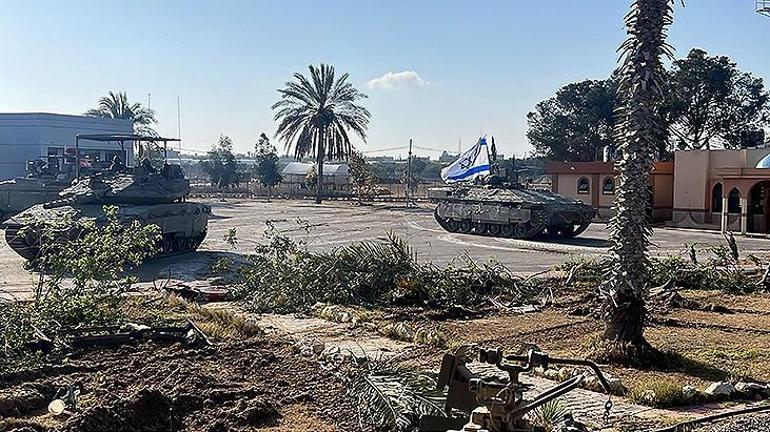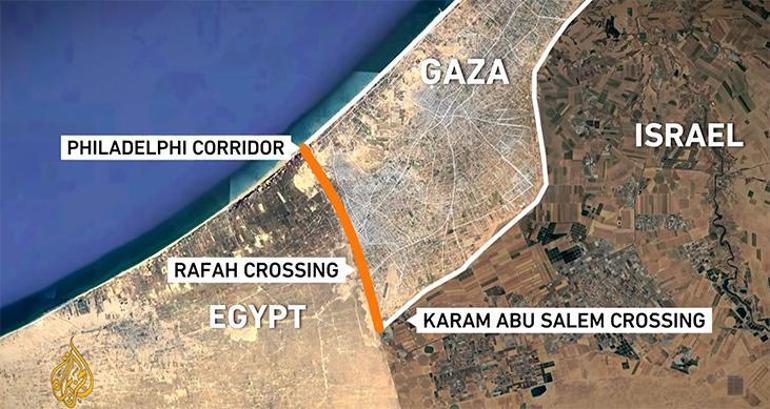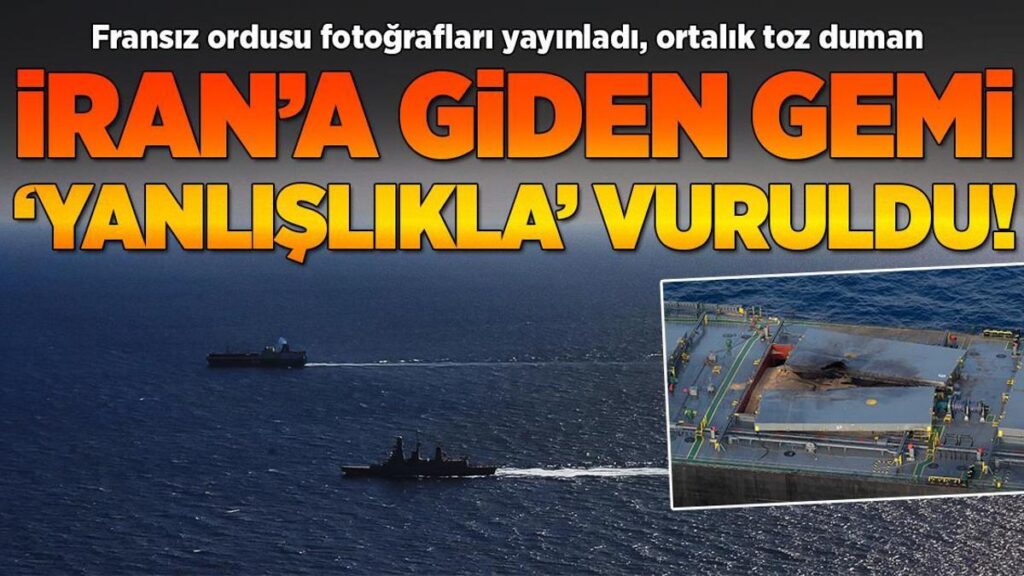
Having expanded their occupation of the Gaza Strip’s southernmost city of Rafah, Israeli forces announced they had captured the entire sensitive Philadelphia corridor on the border with Egypt.
The 14-kilometer-long corridor was first created 45 years ago through an agreement signed between Arab countries and Israel. It is the result of a peace agreement between Egypt and Israel and is in fact a strategic buffer zone.
The Cairo regime had been expressing concern for weeks about attacks targeting Rafah, but the Israeli ground incursion threw all equations into disarray.
In a significant policy shift, Egypt closed its border crossing when Israeli tanks appeared at the Rafah border gate and intervened in the genocide case brought before the International Court of Justice.
Clashes that erupted in the Philadelphia Corridor earlier this week left one Egyptian soldier dead, sparking the first serious crisis between Cairo and Tel Aviv.
Israel’s occupation of the buffer zone, which is several hundred metres wide, represents a violation of the 1979 agreement.
In fact, the Israeli army said there were about 20 tunnels in the Philadelphia Corridor that Hamas uses to smuggle weapons into Gaza. Israeli army spokesman Daniel Hagari said the 14-kilometer corridor is a lifeline for Hamas to “regularly smuggle weapons into the Gaza Strip.”
Egypt quickly denied the allegations, with some sources speaking to local media saying they were an attempt by Israel to justify its occupation of Rafah.
This means tensions between Cairo and Tel Aviv are rising.
Haghari later told reporters he didn’t know if all the tunnels had entered Egypt, according to The New York Times.

First comment from the US
The closely watched US announced that Israel’s occupation of the Philadelphia corridor did not mean a “red line” had been crossed. The White House similarly interpreted the Rafah tent bombing, which killed 45 people, as a failure to cross a “red line.”
The United States is Israel’s main ally, and international opinion is increasingly tilted against Tel Aviv, which continues to commit atrocities in the Gaza Strip with the backing of Washington.
White House national security adviser John Kirby insisted that the occupation of the corridor followed a “limited operations” plan laid out by Israel.
Reaction to Israel through the media
The Philadelphia Corridor, which was controlled by Israeli occupying forces until 2005 when Israel withdrew from the Gaza Strip, is now one of the hotbeds of the war.
Rising tensions are also clearly reflected in Egyptian media stories: the state-run Al-Ahram newspaper ran a headline reading “Egypt has not contacted Israel over alleged tunnels on the Gaza-Egypt border,” while another headline read “No compromises for prosperity.”
“The news about the existence of a tunnel on the Gaza border has no factual basis,” Youm 7 said, stressing that Israel was lying.
El-Masry El-Ehm newspaper presented the article to its readers under the headline “Senior intelligence source responds to Israeli claims.”


